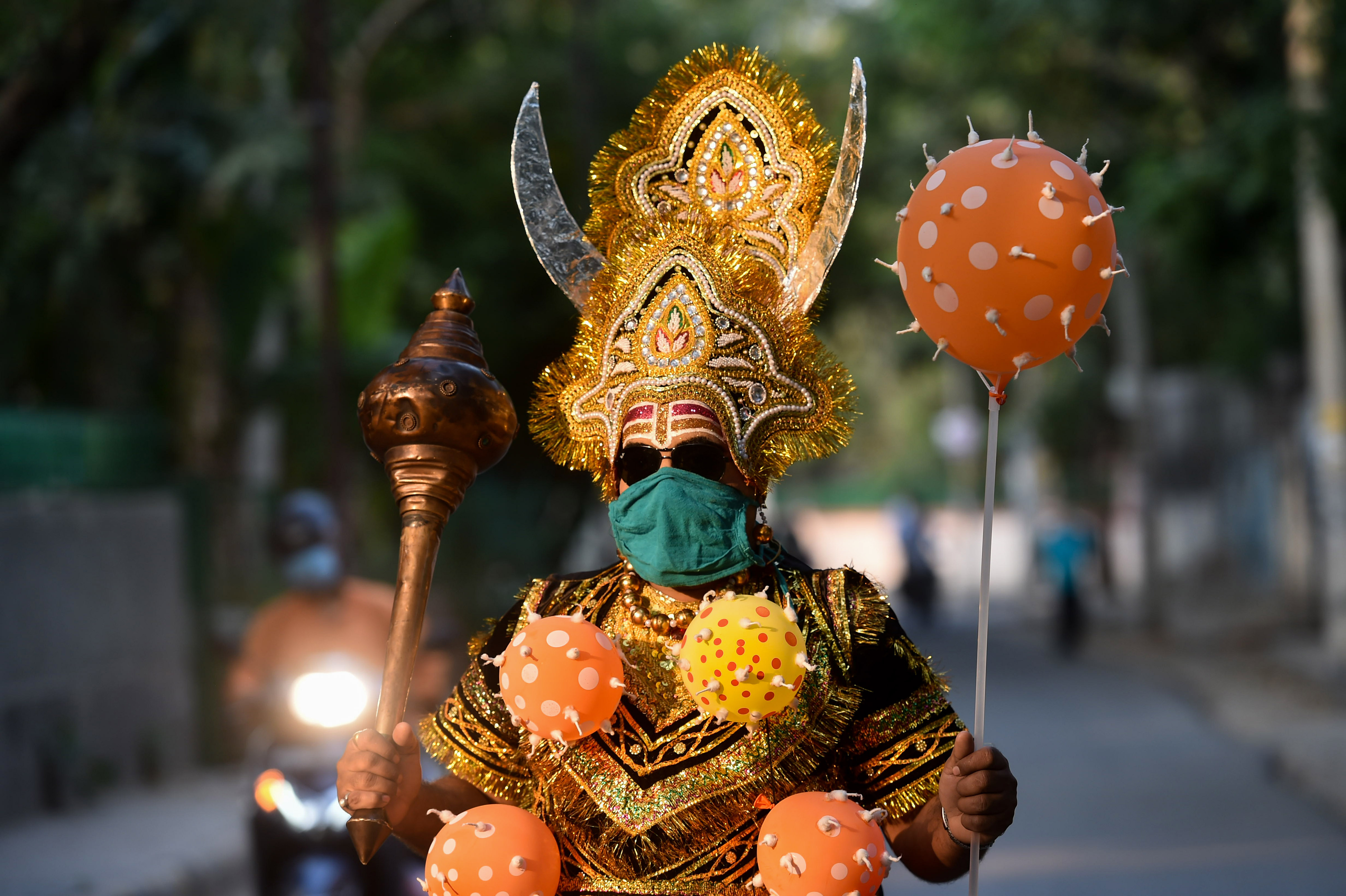Sir — After Andhra Pradesh, Uttarakhand and Bihar, the Hindu deity of death, Yamraj — rather a person dressed as such — has now appeared on the streets of Bengal to raise awareness about the pandemic. This is indeed a novel way to attract the attention of common people and educate them about the ways in which they can protect themselves from infection. However, one wishes that this avatar of Yamraj worried about his own health as much as he cares about the long lives of the citizens — should he not have taken his own advice and put on a mask at least before interacting with people?
Sanchita Mukherjee,
Calcutta
Step forward
Sir — The news that Saudi Arabia has decided to end flogging as a punishment comes only days after the death of one of the country’s leading human rights activists, Abdullah al-Hamid, in custody. This corporal punishment will now be replaced by prison sentences, fines or a combination of both, as per the directive from the kingdom’s apex court.
Saudi Arabia has a history of dealing out harsh punishments to people who challenge the powers that be. A founding member of the Saudi Civil and Political Rights Association, al-Hamid was sentenced to 11 years of imprisonment in March 2013, on multiple charges, including “breaking allegiance” to the Saudi ruler, “inciting disorder” and seeking to disrupt state security. But perhaps the most high-profile instance of flogging in recent times was the case of the Saudi blogger, Raif Badawi, who was sentenced to 10 years in prison and 1,000 lashes in 2014 for “insulting” Islam, among other offences.
The welcome decision to ban flogging is said to be an extension of the human rights reforms introduced under the direction of the king of Saudi Arabia and the country’s de facto ruler and crown prince, Mohammed bin Salman. But who can forget the assassination of Jamal Khashoggi, a vocal critic of the crown prince, in October 2018, inside the Saudi consulate in Istanbul, or the repression of dissidents at home. Such incidents and their condemnation worldwide overshadow the prince’s pledge to modernize the economy and society with this new reforms.
Although this recent step may be one among many — measures have also been taken in favour of women's rights — and has attracted international attention, it should be remembered that other forms of corporal and capital punishment, such as amputation for theft or beheading for murder and terrorism offences, are yet to be outlawed.
Bidyut Kumar Chatterjee,
Faridabad
Sir — While the world is fighting the coronavirus, Saudi Arabia has taken an unexpected measure. Over time, the country, known for its strict punishments, has been taking certain significant steps. After being appointed crown prince in 2017, Mohammed bin Salman issued an order to remove restrictions barring women from driving — until then, women were imprisoned for defying the ban. Now, Saudi Arabia has decided to end the punishment of whipping. This punishment was common in the country — a range of offences, including public intoxication and harassment, were punishable by whipping.
The change of laws in Saudi Arabia has raised questions about the motivation behind such steps. Perhaps the authorities want to break the image of the country being fanatical and orthodox in front of the international community. This would ensure that foreigners feel welcome in the country and give a boost to the tourism industry. This would surely help the economy.
Yashasvi Singh,
Allahabad
Deep impression
Sir — The death of Zarina Hashmi is a great loss to the world of art (“Zarina, who spoke art, passes away”, April 27). Her works span an enormous range, from drawing to printmaking and sculpture. She was one of the handful of popular women artists in India who worked during the time of M.F. Husain, V.S. Gaitonde and Tyeb Mehta.
Through her art — geometric shapes and minimalism were her forte — Hashmi explored ideas of home, distance and divergent trajectories, her extensive travels perhaps influencing her themes. As such, one may find a similarity between some of Hashmi’s concepts and those of Ritwik Ghatak, in the sense that both, albeit in their distinct ways, seemed to draw abstract maps of places to trace out an idea of home. For though Hashmi spent decades of her life in the West, she had a deep-seated love for India.
Dyutiman Bhattacharya,
Calcutta
Sir — One of the foremost women artists of her generation, Zarina Hashmi distilled complex histories of displacement, home and migration in her art. She passed away on April 25, in London, at the age of 83. In her later years, Hashmi was immensely moved by the plight of the Rohingyas and that of refugees in general.
S.S. Paul,
Nadia










